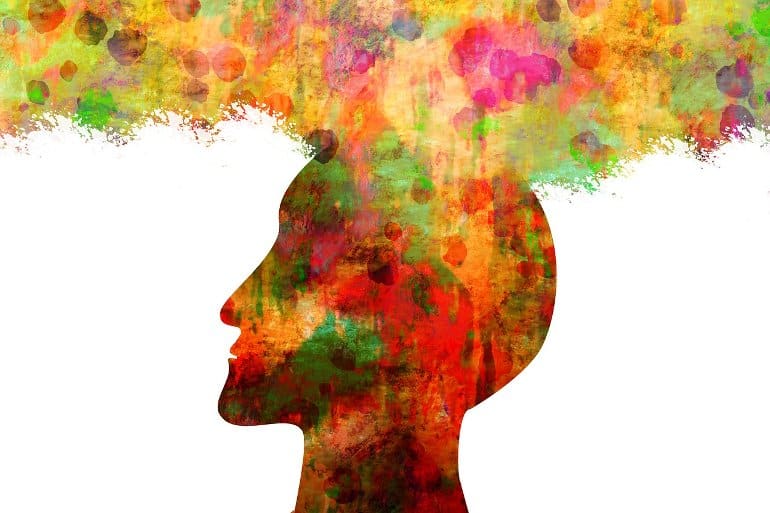Summary: Over-activity in the hippocampus has been linked to certain symptoms of schizophrenia.
Source: University of Nottingham
New research has shown that over-activity in a specific area of the brain is linked to certain symptoms of schizophrenia, opening up possibilities for the development of more targeted treatments.
Researchers from the University of Nottingham found that faulty inhibitory neurotransmission and abnormally increased activity in the hippocampus doesn’t disrupt the ability to filter out irrelevant information, a key process which has been shown to be deficient in patients with schizophrenia and is thought to cause hallucinations or delusions but does disrupt associative learning.
Deficits in associative learning, such as Pavlovian fear conditioning, have been linked to the negative symptoms of the disorder which include reduced motivation and disrupted emotional and reward processing.
Their findings have been published in eNeuro.
Schizophrenia is a major illness. At any one time about 220,000 people are being treated for schizophrenia in the UK by the NHS. It is psychotic illness which exhibits itself in three ways: negative symptoms such as lethargy, apathy and social withdrawal, positive symptoms such as hallucinations and delusions and cognitive symptoms such as impaired memory. Either or all three may be present in an individual at the same time.
Neurons in the brain interact by sending each other chemical messages, so-called neurotransmitters. Gamma-aminobutyric acid (GABA) is the most common inhibitory neurotransmitter, which is important to restrain neural activity, preventing neurons from getting too trigger-happy and from firing too much or responding to irrelevant stimuli.
The hippocampus is a part of the brain that sits within our temporal lobes and plays a major role in our memories and emotions. This latest research has implications for understanding more about how this part of the brain affects specific aspects of schizophrenia.

The study was carried led by post-doctoral researcher Stuart Williams, he says that “we know that people with schizophrenia have increased hippocampal activity, we wanted to explore this further and find out exactly how this manifests itself. Through our research carried out in rats we were able to ascertain the importance of GABAergic inhibition within the hippocampus in relation to certain symptoms associated with schizophrenia.
“Specifically, we found no evidence that faulty inhibition within the hippocampus disrupts behaviors related to the underlying cognitive processes which are thought to contribute to the onset of hallucinations or delusions but did find that it may contribute to some of the negative symptoms, disrupting associative learning in the form of conditioned fear.”
This study has important implications for developing treatments for the negative symptoms of schizophrenia.
Stuart continues: “By revealing previously unknown detail about the role of aberrant activity in the hippocampus, we are providing insights into the behavioral consequences that disruption of specific neural structures, such as the hippocampus, have in schizophrenia. This could help to develop more targeted treatments that improve the management of specific aspects of schizophrenia symptomatology such as improving negative symptoms, potentially by dampening down this over-activity in the hippocampus.
About this schizophrenia research news
Author: Press Office
Source: University of Nottingham
Contact: Press Office – University of Nottingham
Image: The image is in the public domain
Original Research: Open access.
“Hippocampal Disinhibition Reduces Contextual and Elemental Fear Conditioning While Sparing the Acquisition of Latent Inhibition” by Stuart A. Williams et al. eNeuro
Abstract
Hippocampal Disinhibition Reduces Contextual and Elemental Fear Conditioning While Sparing the Acquisition of Latent Inhibition
Hippocampal neural disinhibition, i.e., reduced GABAergic inhibition, is a key feature of schizophrenia pathophysiology. The hippocampus is an important part of the neural circuitry that controls fear conditioning and can also modulate prefrontal and striatal mechanisms, including dopamine signaling, which play a role in salience modulation.
Consequently, hippocampal neural disinhibition may contribute to impairments in fear conditioning and salience modulation reported in schizophrenia. Therefore, we examined the effect of ventral hippocampus (VH) disinhibition in male rats on fear conditioning and salience modulation, as reflected by latent inhibition (LI), in a conditioned emotional response (CER) procedure. A flashing light was used as the conditioned stimulus (CS), and conditioned suppression was used to index conditioned fear.
In experiment 1, VH disinhibition via infusion of the GABA-A receptor antagonist picrotoxin before CS pre-exposure and conditioning markedly reduced fear conditioning to both the CS and context; LI was evident in saline-infused controls but could not be detected in picrotoxin-infused rats because of the low level of fear conditioning to the CS. In experiment 2, VH picrotoxin infusions only before CS pre-exposure did not affect the acquisition of fear conditioning or LI. Together, these findings indicate that VH neural disinhibition disrupts contextual and elemental fear conditioning, without affecting the acquisition of LI.
The disruption of fear conditioning resembles aversive conditioning deficits reported in schizophrenia and may reflect a disruption of neural processing both within the hippocampus and in projection sites of the hippocampus.







